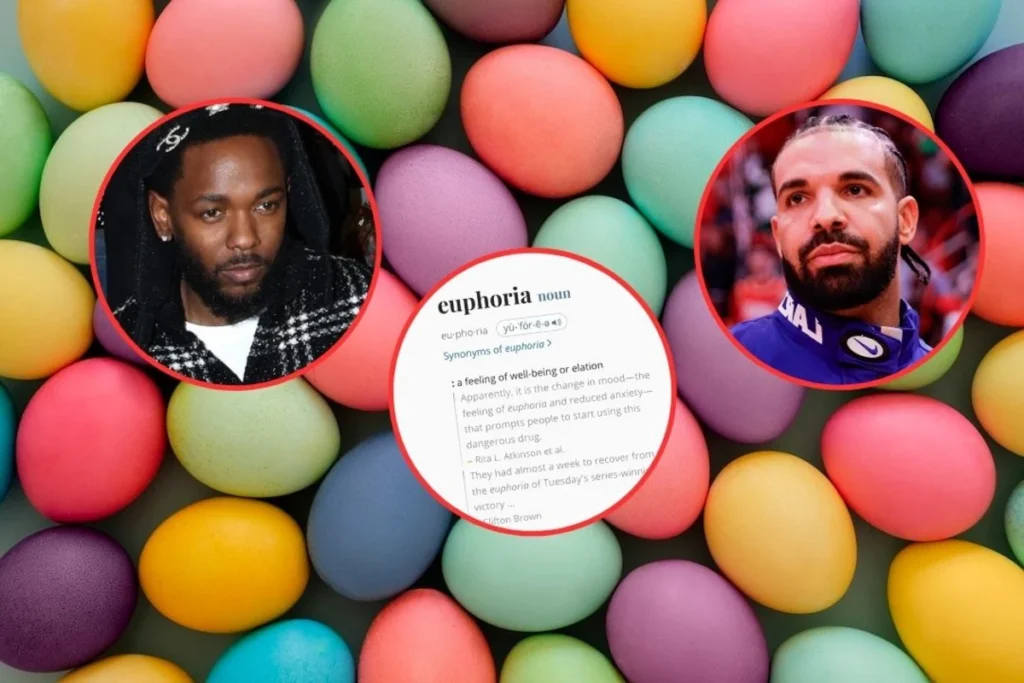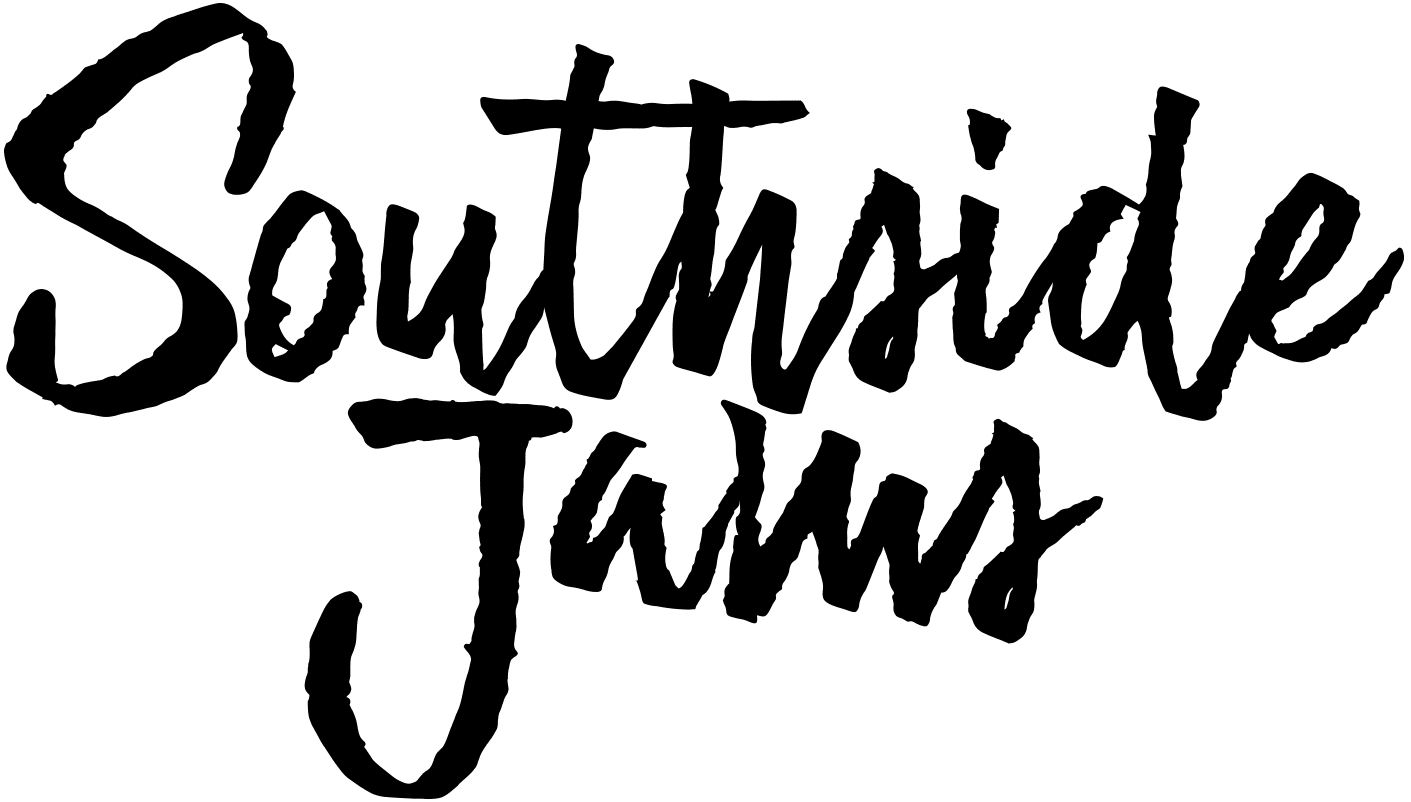Easter Eggs in Kendrick Lamar’s Drake Diss Track Explained

Kendrick Lamar has sent the hip-hop world in a frenzy after he dropped his blistering Drake diss track “Euphoria.” The six-minute song is peppered with intriguing Easter eggs that become even more interesting with repeated listens.
The Cardo-produced song is full of hidden gems that are easily noticed by eagle-eyed fans, as well as some that are not so subtle. Here are several Easter eggs and decoded lyrics spotted on Kenny’s “Euphoria.”
Kendrick Lamar’s Unique Timing
At 8:24 a.m. Pacific Time (11:24 a.m. Eastern Time), Kendrick Lamar released “Euphoria.” The numbers 8 and 24 are a subtle tribute to the late Kobe Bryant, as they were his jersey numbers. K-Dot held Kobe Bryant in the utmost admiration.
Mark Davis, Getty Images for Spike TV
loading…
The Initial Reversed Voice Is of Richard Pryor From The Wiz
The opening backward voice is of Richard Pryor from 1978 film The Wiz. Pryor played the character The Wiz. When playing it forward, it says, “Everything they say about me’s true.” That line is a nod to Kendrick saying everything about Drake on the track that K-Dot thinks the “culture” also thinks about Drizzy.
Interestingly, the late music icon Michael Jackson also stars in the movie playing the Scarecrow, who goes with Dorothy on her journey to meet the Wiz so he can get a brain (Kendrick might be suggesting that Drizzy lacks intelligence). On “Push Ups,” Drake referred to Kendrick as Prince and himself as MJ.
The Double Meaning Behind “Euphoria”
The “Euphoria” cover art features a photo of the dictionary definition of the word. That move can be interpreted as Kendrick’s excitement for the diss track, countering Drizzy’s insinuation on the “Taylor Made Freestyle” that Kenny was less enthusiastic about battling him. Wrong.
It’s also in reference to the HBO series of the same name that Drake serves as executive producer.
Euphoria TV Show
loading…
“Crodie” Is Toronto Slang
The term “crodie” is a crip-influenced variation of “Brodie,” a Toronto slang term for a friend. It’s popularity extends beyond gang affiliations, as non-affiliated people and rappers have also adopted the word.
Drake’s “Open Case” Likely Refers to Him Paying a Woman Claiming Sexual Assault
Kendrick’s line, “Have you ever paid 500 thou’ like to an open case?” may be in reference to Drake having to pay out $350,000 to a woman who accused him of sexual assault during the British leg of his 2017 Boy Meets World tour. Although the Toronto rap star was never charged, he reportedly quietly settled the case in November of 2018. K-Dot says $500,000 on the track, which may be confusing to some rap fans if Drizzy paid $350K. If this information is true, The New Zealand Herald‘s 2019 headline is “Drake paid out $530K to sexual assault accuser,” which is in the New Zealand dollar. That article may be where Kendrick got the amount from.
Kendrick Clowns Drake for Buying Tupac Shakur’s Crown Ring at Sotheby’s Auction
Regarding Drake’s acquisition of Tupac Shakur’s crown ring for $1 million from Sotheby’s, Kendrick’s line, “Somebody had told me that you got a ring, on God, I’m ready to double the wage/I’d rather do that than let a Canadian n***a make ‘Pac turn in his grave,” expresses his disapproval. Kenny believes that Drizzy is not deserving of owning such a prized possession, suggesting that he would rather pay twice the amount to prevent Drake from having such a valuable item.
Tommy Hilfiger’s Rocky Relationship With Hip-Hop
One of Kendrick’s most biting lines comes at the beginning of the song where he questioned Drake’s racial identity. “You’rе not a rap artist, you a scam artist with the hopes of being accеpted/Tommy Hilfiger stood out, but FUBU never had been your collection.”
In that verse, the former TDE artist may be referring to fashion icon Tommy Hilfiger’s rocky relationship with hip-hop culture. In 1996, the brand faced an email boycott due to unsubstantiated rumors that Tommy Hilfiger appeared on The Oprah Winfrey Show and expressed that he did not want Black people to wear his clothing. The accusation seemed strange considering that Hilfiger had featured Black artists like Usher and the late singer Aaliyah prominently in his print campaigns. The rumor wasn’t true, but the boycott led many Black consumers to wear Black-owned brands like FUBU and Walker Wear. Hilfiger eventually denied the rumor when he officially appeared on Oprah’s show in 2007.
On “Euphoria,” Kenny questioned the Toronto rhymer’s biracial background and his proximity to Black culture. In one particular line, Kendrick urged Drake to stop using the N-word in his music. “We don’t wanna hear you say ‘n***a’ no more/We don’t wanna hear you say “n***a” no more,” he rapped at the end of the song.
